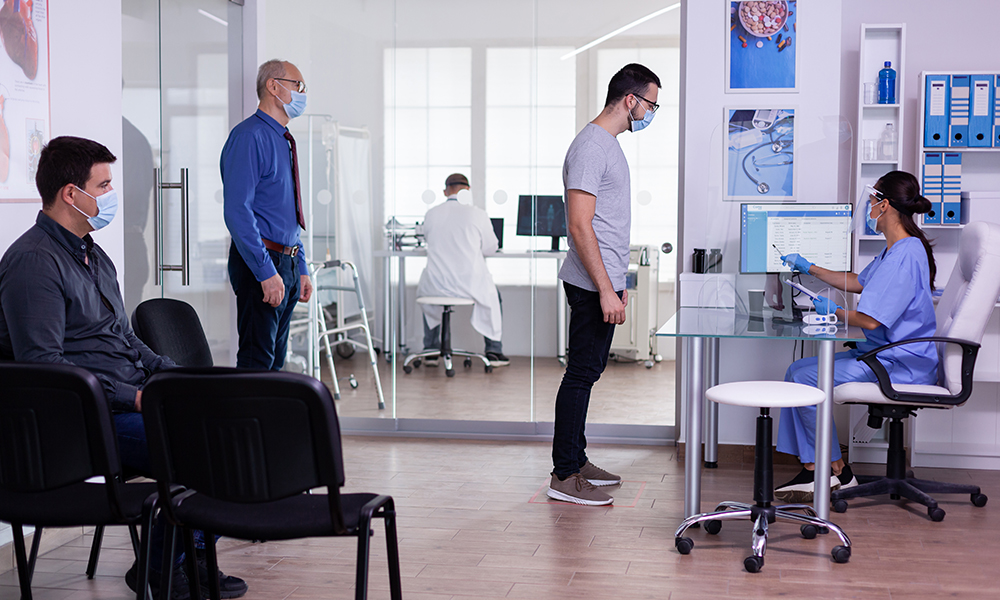How secure is your healthcare facility? With increasing security threats, from patient safety concerns to data breaches, hospitals must implement strong security measures to safeguard staff, patients, and assets.
Hospitals operate in a high-risk environment, making them vulnerable to various security threats, including:
- Unrestricted public access, leading to potential unauthorised entry
- Theft of sensitive patient data and controlled substances
- Violence and aggression towards staff and patients
- Emergencies such as natural disasters or medical crises
- Cybersecurity threats impacting patient confidentiality
With multiple entry points, diverse personnel, and sensitive information at risk, hospital security is no longer optional. It is a necessity.
This guide will walk you through key hospital security measures, including access control, surveillance, emergency preparedness, and compliance standards, to create a safer healthcare environment.
Access Control in Hospitals
Controlling access to different areas within a hospital is vital for patient safety, staff protection, and data security. Modern access control systems utilise advanced security protocols to restrict entry and monitor movement within healthcare facilities.
Key Access Control Features
- Biometric authentication systems (fingerprint or facial recognition)
- Keyless access control systems (smart cards or mobile access)
- Cloud-based access control for real-time management
- Video surveillance integration for enhanced monitoring
- Role-based privileges (limiting access based on staff roles)
- Visitor management systems to track entry and exit
- Intrusion detection to prevent unauthorised access
The Principle of Least Privilege
A best practice in hospital security is applying the Principle of Least Privilege (PoLP), granting access only to essential areas based on an individual’s role. This prevents unauthorised access to operating rooms, pharmaceutical storage, and patient records.
Lockdown Options for Emergencies
Hospitals should have lockdown protocols in place in case of security threats. Cloud-based access control allows remote lockdown, ensuring immediate protection during crises.
For example, in a newborn unit, access should be strictly controlled, allowing only authorised personnel and parents entry.
Emergency Preparedness in Healthcare
Hospitals must be ready for unpredictable emergencies, including natural disasters, medical crises, and security threats. Emergency preparedness plans should cover:
Key Emergency Security Measures
- Emergency protocols for security breaches
- Evacuation procedures for fires or natural disasters
- Rapid response teams for medical crises
- Integration with local law enforcement for quick action
- Regular security drills to train staff
- Clear communication channels for a coordinated response
Example of Effective Emergency Response
If a violent incident occurs, a hospital-wide lockdown and panic alarm activation can ensure patient and staff safety. Security personnel should be trained in de-escalation strategies to prevent escalation.
Patient and Staff Safety Measures
Ensuring patient and staff safety in hospitals requires proactive security measures, including access control, surveillance, and violence prevention strategies.
Violence Prevention in Hospitals
Hospital staff frequently face aggression from patients or visitors. To mitigate risks, hospitals should:
- Implement de-escalation training for staff
- Install panic alarms in high-risk areas
- Use non-lethal security tools for defence
- Conduct regular security audits
Preventing Patient Elopement and Infant Abductions
Security measures such as:
- Door alarms in psychiatric and geriatric wards
- Video surveillance in patient rooms
- RFID wristbands for newborns
- Restricted access to maternity wards
These steps help prevent patient elopement and infant abductions.
Surveillance Systems for Hospital Security
Enhance hospital security with advanced surveillance systems that provide real-time monitoring, deter threats, and ensure compliance with privacy regulations.
Types of Hospital Surveillance Cameras
- Fixed cameras for constant monitoring
- Pan-Tilt-Zoom (PTZ) cameras for adjustable views
- Body-worn cameras for staff protection
- Motion sensors to detect unauthorised movement
Benefits of Hospital Surveillance
- Deters criminal activity
- Assists in incident investigations
- Ensures compliance with security regulations
- Provides real-time monitoring of hospital activities
Ensuring Privacy and Compliance
Surveillance must comply with HIPAA and privacy laws. Access to footage should be restricted to authorised security personnel, ensuring patient confidentiality.
Regulatory Compliance in Hospital Security
Hospitals must comply with legal security requirements, including:
- HIPAA compliance standards (protecting patient data)
- Fire safety codes (ensuring safe evacuations)
- The Joint Commission accreditation requirements (security guidelines for healthcare facilities)
Failure to meet compliance standards can result in legal consequences and data breaches. Regular audits should be conducted to maintain compliance and security integrity.
The Role of Security Personnel in Hospitals
Trained hospital security officers are essential for crime prevention, emergency response, and staff protection.
Their responsibilities include:
- Patrolling hospital grounds
- Monitoring security cameras
- Responding to emergencies
- Enforcing hospital security policies
Hospitals should invest in ongoing security training to ensure staff are prepared for threats.
Final Thoughts
Ensuring hospital security is not just about protecting property. It is about saving lives.
By implementing robust access control, emergency preparedness plans, surveillance systems, and compliance strategies, hospitals can create a secure and efficient environment for patients, visitors, and staff.
Is your hospital security up to standard? Protect your healthcare facility today. Contact us to learn more about advanced hospital security solutions.
Frequently Asked Questions (FAQs)
Why is access control crucial in hospitals?
Access control restricts unauthorised entry, ensuring patient safety, data security, and theft prevention.
How do hospitals prepare for security emergencies?
Hospitals implement emergency response plans, security drills, and coordination with law enforcement to handle crises effectively.
What security measures prevent patient elopement?
Door alarms, security cameras, and RFID tracking help monitor and prevent patient elopement.
How does hospital surveillance ensure patient safety?
Cameras deter crime, track activity, and assist in emergency response, ensuring staff and patient security.
What laws regulate hospital security?
HIPAA, fire safety codes, and The Joint Commission standards mandate hospital security compliance.
